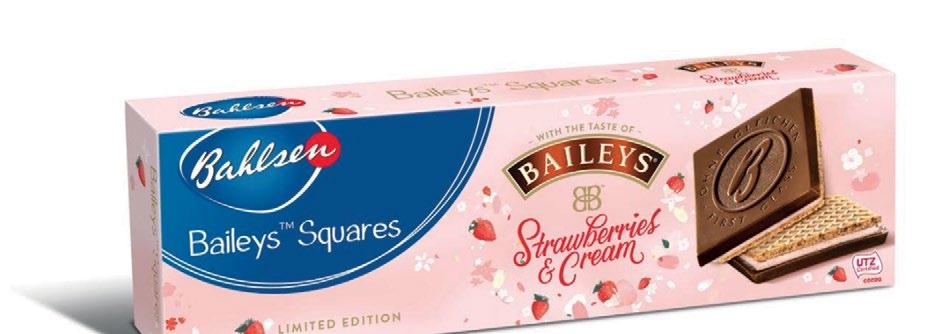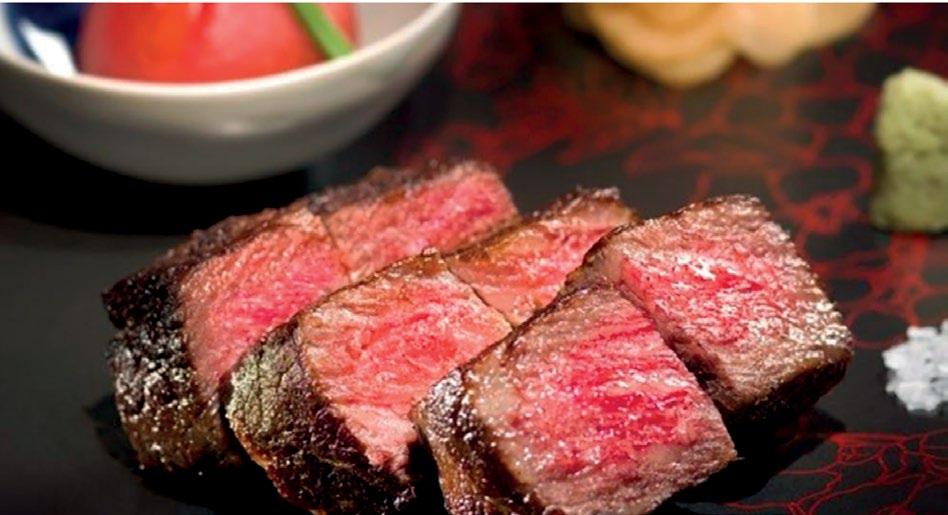
6 minute read
Octane 5
Managing and Minimizing Your Risk
The current pandemic has created wide-ranging changes across the licensing industry and we’re all still working to adapt. Recently, Total Licensing had the chance to catch up with Denise Penn, Director EMEA, Octane5/BrandComply about some of the risks brands are facing today and how to best manage those...
Total Licensing: What do you think some of the biggest risks that brands face in the ‘new normal’? Denise Penn: We’ve given this a lot of thought and identified four key areas of risk to Licensors right now – Retailer Survival, Factory Risk, Licensee Stability, and IP Infringement. Total Licensing: Let’s start with Retailer Survival – we’re clearly in the midst of unprecedented change in Retail. Denise Penn: I’ve been in licensing for nearly 25 years and this is the most incredible upheaval I think any of us have ever seen. There was already a shift from traditional retail to online, but Coronavirus has accelerated that change. It seems almost daily we hear about the insolvency of a retailer that just wasn’t able to adapt quickly enough to the new reality. Total Licensing: Really incredible change on the retailer side. What’s the risk to licensees and factories that brands need to manage? Denise Penn: Well let’s look at factories. Coronavirus has had an impact on a local and regional level. As governments localize shutdowns, you may have factories closed in one part of a country, but then open in another region. This can create challenges for licensors as the closures shift and therefore challenging to evaluate the impact on your supply chain. If you get enough of these closures, there is clearly risk to the licensee. Right now, many regions of the world are re-opening, but slowly. Experts say we could be hit with another wave of shutdowns in the fall. What will be the impact to licensees if that happens? Total Licensing: Tough questions, how do licensors manage this risk? Denise Penn: Well the key is for licensors to start collecting relevant data about their supply chain. For years, our team has been advocating factory approval by licensors and from its earliest days, BrandComply was setup to automate the factory approval process. In a similar way, you’ve got to also collect more detailed retail channel information from your licensees. So, we setup BrandComply to collect a true hierarchy of retail info which can drill down to the specific retailer. Total Licensing: Makes sense but if a brand has, let’s say 75 licensees, each with dozens of factories and multiple retailers, won’t the licensor be drowning in data? Denise Penn: That’s where data management becomes critical. You need a system to not only collects data but deliver data to the licensor in a user-friendly format. At Octane5, we’ve designed BrandComply with exactly that in mind. Reports are intuitive to run and data is presented in easy to understand formats with a variety of visualizations so data like factory and retailer risk can be understood not only by the licensing team but by others in the organization who may need to be updated. Total Licensing: You mentioned four areas of risk and we’ve covered three – retail, factory and licensee. What about the fourth area – IP Infringement. How has Coronavirus made this a bigger risk than it was before? Denise Penn: It’s critical to understand counterfeiters mind set. They are criminals, but they are savvy business people as well. They understand the massive shift from brick and mortar retail to online and they’re taking full advantage of that shift. Since the beginning of the pandemic, enforcement sites have reported a 38% increase in online counterfeit activity with products like apparel, toys, home good and accessories leading the way. Of course, these are the very product categories that many licensors rely upon for their business. Total Licensing: Frightening stats, but what’s a licensor to do? Denise Penn: Licensors need a proactive approach to protecting their brand that they implement across all licensees so there is a consistent means for consumer to identify legitimate products. We’re talking about a high security hang tag or label that consumers can identify. At Octane5, we leverage the same security features found in the pound banknote and using in hang tags and labels specifically for the licensing industry. Onto this secure product, we’ve layered unique QR codes that consumers can scan to validate the product and learn more about the brand.
Octane5 is the company behind BrandComply, the only enterprise licensing system that delivers actionable information from Contract to Consumer. All licensing functions – Approvals, Contract Management, Royalties, Security Devices and Consumer Activation – all in a single online tool. To learn more about Octane5, you can contact Denise Penn denise@octane5.com or call +44 (0)7733 304452 www.brandcomply.com
IMG to Rep AB InBev Brands in Multi-Year Partnership
IMG has been appointed by AB InBev as the exclusive licensing representative in Europe and the Middle East for the global brewer’s world-renowned brands, including Budweiser, Stella Artois, Beck’s, Leffe and more. The multi-year partnership will see IMG develop licensed products that reflect the distinct character of each individual brand: Budweiser for an extra-ordinary lifestyle; Stella Artois’ mantra of savouring life together; Beck’s’ spirit of freedom and progressive thinking; and Leffe’s deep roots and community spirit.

Beanstalk Serves up Strawberries & Cream

Bahlsen Baileys Squares Strawberries & Cream has been announced, in a partnership that was brokered by Beanstalk. The product hit shelves exclusively in Waitrose in time for the UK May bank holiday. Beanstalk is the agent for Baileys.
How to Brand Waygu Beef By Consor IP Consulting and Valuation

With the rise of plant-based meat substitutes such as the Impossible Burger, one may forget about the increased global demand for Japanese Wagyu beef. Characterized by high levels of intra-muscular fat (marbling) and a finer meat texture, Wagyu has become synonymous with the highest quality of beef. In Japanese, “Wagyu” literally means Japanese-style cow, and the four breeds of cattle used for Wagyu beef are all endemic to Japan. According to an article from The Japan Times, Japan’s most popular English-language newspaper, the Japanese government plans to double its production of Wagyu beef from 149,000 tons in 2018 to 300,000 tons by 2035. Unfortunately, this increase in demand has led to recent attempts to smuggle Wagyu cattle genetic material from Japan to foreign countries. In response, Japan’s farm ministry proposed legislation intended to protect the intellectual property in Wagyu cattle eggs and sperm. Suffice it to say, the Japanese government is very concerned about the possibility of Wagyu cattle being raised in other countries without proper authorization.Presumably, the ministry believes that the many generations of selective breeding and technical know-how of raising Wagyu cattle should be considered intellectual property. Furthermore, unsanctioned breeding may result in an inferior product which would tarnish the prestigious Wagyu name. This is the same rationale behind the French appellation d’origine contrôlée system which grants certifications, or appellations, to confirm certain French products were created in the regions they claim to be from (i.e. a Bordeaux wine must come from Bordeaux). If the Japanese government were to create a system like that which exists in France, it would give Japanese authorities increased power to fine and prosecute the unauthorized use, purchase, sale, or export of Wagyu cattle genetic material. It is imperitive that Japan protect this strong asset.










